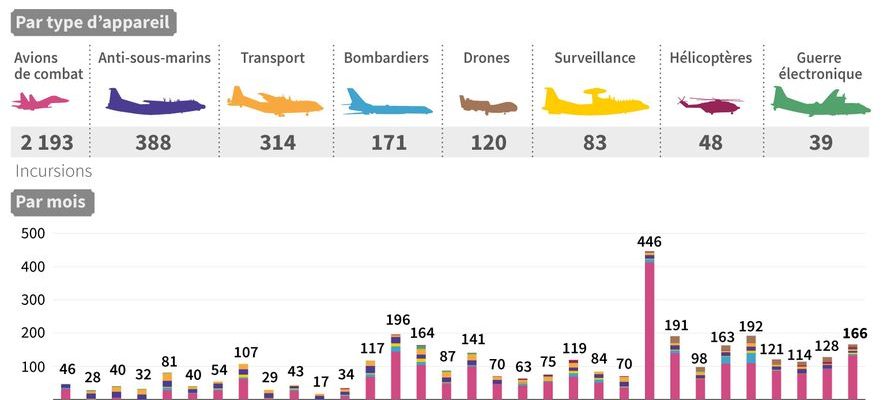Will the tension again rise a notch between Beijing and Taipei? This Sunday, August 12, China promised that it would take “firm and vigorous measures to safeguard its sovereignty and territorial integrity”. At issue: a visit by Taiwanese Vice-President William Lai to the United States, before a trip to Paraguay next week.
Officially, Taipei speaks of a simple transit through American soil before traveling to Paraguay (one of the last countries to officially recognize Taipei) to witness the inauguration of the new president, Santiago Peña. But the Taiwanese leader with assumed independence positions, and as such a pet peeve of Beijing, could meet American political figures during his stay in New York, where he is currently. Especially since on his return, he has to stop over for a few days in San Francisco.
However, China considers that Taiwan is one of its provinces, which it has not yet succeeded in reunifying with the rest of its territory since the end of the Chinese civil war in 1949. Thus “China opposes firmly to any form of official contact between the United States and Taiwan and firmly opposes any separatists campaigning for Taiwanese independence visiting the United States,” a spokesperson for the Chinese Ministry of Foreign Affairs said. Foreign Affairs. For his part, William Lai said he was “happy to arrive in the Big Apple, an icon of freedom, democracy and opportunity”. He also wrote about X (ex-Twitter) having been welcomed by a representative of the American Institute in Taiwan, the organization which acts as the de facto American embassy on the island in the absence of diplomatic relations between Washington and Taipei.
William Lai is a candidate to succeed current President Tsai Ing-wen. Both are from the Progressive Democratic Party (PDP, pro-independence). China views with suspicion the meetings in recent years between Taiwanese leaders and representatives of certain Western countries, in particular the United States, because they confer a form of legitimacy on the authorities of the island.
Growing tensions in recent months
Already, last April, the arrival of a delegation of eight members of the American Congress for discussions on trade and security in Taipei had revived tensions between the island and China. A few days earlier, Taiwanese President Tsai Ing-wen had met Kevin McCarthy, Speaker of the US House of Representatives (and third figure of the US state), in California. Faced with what it considers a “dangerous provocation”, China then made a threatening military demonstration around Taiwan for three days. Warships had been deployed in the waters around the island, as well as an aircraft carrier.
Chinese military aircraft in the Taiwan Air Defense Zone
© / afp.com/John SAEKI
A year ago, in August 2022, Beijing also launched unprecedented military maneuvers around Taiwan, when Democrat Nancy Pelosi, predecessor of Kevin McCarthy, stepped onto Taiwanese soil.
Chinese military aircraft regularly make incursions into Taiwan’s Air Defense Identification Zone (Adiz). During the week preceding William Lai’s departure, the Chinese military presence around Taiwan was more important than usual.
